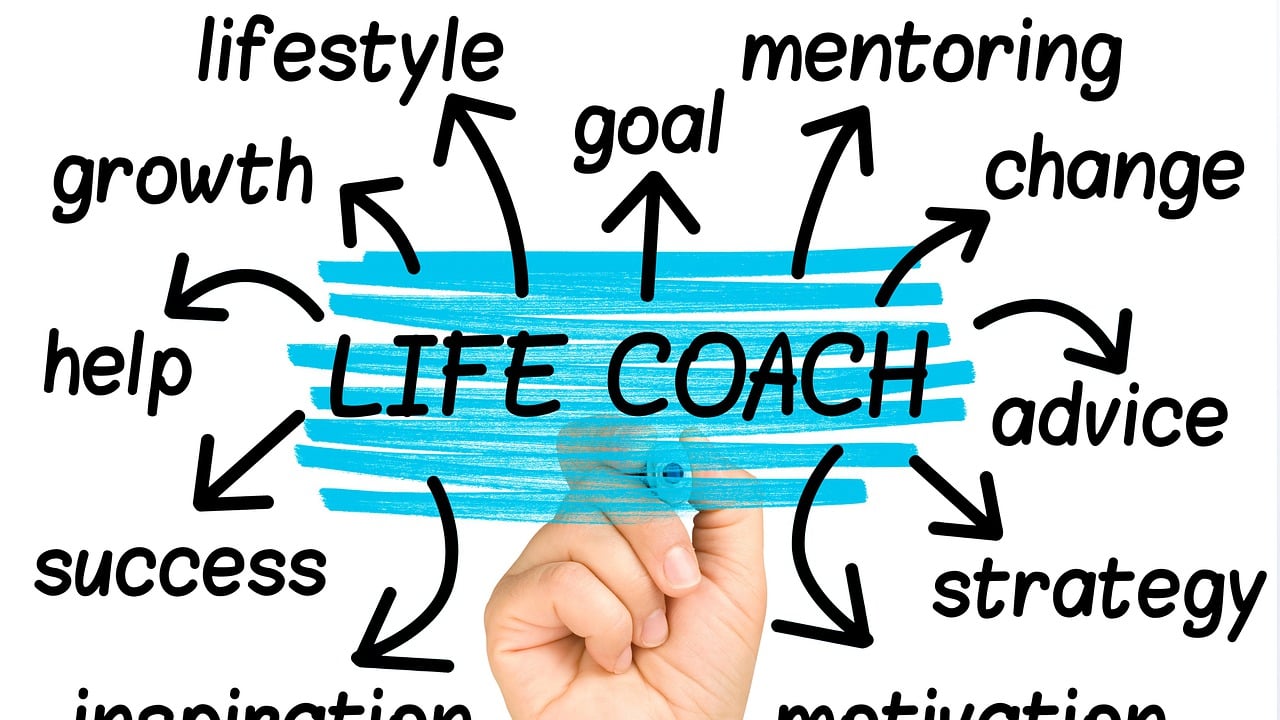Blog Posts
 March 18, 2025What is a Life Coach?
March 18, 2025What is a Life Coach?By: Coach Vern
A life coach is a professional who helps clients to set and achieve personal or professional goals. They work with clients to identify areas of their lives that need improvement, develop strategies for success, and provide support and guidance throughout the process. Life coaches are not therapists, counselors, or mentors, but rather guides who help people make positive changes in their lives.
One of the primary roles of a life coach is to listen actively and empathetically to their client's concerns and goals. They work with clients to identify what they want to achieve, whether it be improving relationships, advancing in their careers, or finding more balance and fulfillment in their personal lives. Life coaches then help clients develop specific, measurable, achievable, relevant, and time-bound (SMART) goals that align with their values and priorities.
In addition to setting goals, life coaches also provide tools and strategies for overcoming obstacles and staying motivated. They may use techniques such as visualization, affirmations, or journaling to help clients stay focused on their objectives. Life coaches may also offer accountability and support by checking in regularly with clients, providing feedback, and celebrating successes.
Life coaching can be applied to various areas of life, including career development, relationships, health and wellness, personal growth, and more. For example, a person looking to transition into a new career might work with a life coach to identify their strengths, explore different industries or job roles, and develop a plan for making the switch. Similarly, someone struggling in their romantic relationship might work with a life coach to improve communication skills, set boundaries, and build intimacy.
Overall, the role of a life coach is to empower individuals to take control of their lives, make positive changes, and achieve their goals. By providing guidance, support, and accountability, life coaches help clients develop the skills, confidence, and motivation they need to succeed in all areas of their lives. Whether you're looking to improve your career prospects, build stronger relationships, or simply find more fulfillment and happiness, a life coach can be a valuable resource on your journey towards personal growth and success.
How Can Becoming a Certified Life Coach Advance My Career?
As professionals, we're always looking for ways to grow and advance our careers. One often-overlooked way is by becoming a certified life coach. While it may not seem directly related to your current field or industry, the skills and knowledge gained through this certification can have far-reaching benefits that enhance your professional profile.
One of the primary advantages of becoming a certified life coach is the development of strong communication and interpersonal skills. As a life coach, you'll learn how to actively listen, ask powerful questions, and empower clients to achieve their goals. These same skills are highly valued in many industries, including business, education, healthcare, and more. By honing these abilities, you can become a more effective communicator and collaborator within your current role or as you transition into new opportunities.
Another way that becoming a certified life coach can advance your career is by expanding your professional network. As you complete your certification training, you'll have the opportunity to connect with other professionals in the coaching industry, including experienced coaches, mentors, and like-minded individuals who share similar passions and interests. These connections can lead to valuable collaborations, mentorship opportunities, or even new business ventures.
In addition to personal and professional growth, becoming a certified life coach can also enhance your career prospects by demonstrating your commitment to ongoing learning and development. In today's fast-paced and ever-changing work environment, employers are looking for professionals who are adaptable, resilient, and eager to learn and grow. By pursuing certification as a life coach, you'll demonstrate these qualities and show that you're proactive in seeking new knowledge and skills.
One of the best things about becoming a certified life coach is the opportunity to build a growing income in a thriving, multibillion-dollar industry where the demand for coaching continues to rise. With the flexibility to design your own business, work with clients around the world, and tap into diverse coaching niches, the financial potential is significant. However, the true benefit goes far beyond the income. The real gift of becoming a life coach is the profound growth in self-awareness. Through your own personal development journey—learning to actively listen, ask powerful questions, and hold space for transformation—you deepen your understanding of yourself, your triggers, your strengths, and your purpose. This inner growth not only enhances your coaching abilities, but also enriches every aspect of your life, making you a more conscious leader, communicator, and human being.
Ultimately, becoming a certified life coach can be a powerful way to advance your career by developing valuable skills, expanding your professional network, and demonstrating your commitment to ongoing learning and development. Whether you're looking to transition into a new role or simply enhance your current position, this certification can provide the tools and confidence needed to achieve your goals and take your career to the next level.
Coach Vern has nearly two decades of experience in corporate, executive, and entrepreneurship coaching and is widely respected as an expert in the coaching community.
 March 19, 2025Leadership Advancement through Mentorship
March 19, 2025Leadership Advancement through Mentorship April 07, 2025Thinking About Leadership: Leadership Theories
April 07, 2025Thinking About Leadership: Leadership Theories April 16, 2025Thinking About Leadership: Leadership Styles
April 16, 2025Thinking About Leadership: Leadership Styles April 18, 2025MEG Launches New Leadership Certificate Program
April 18, 2025MEG Launches New Leadership Certificate Program April 23, 2025Thinking About Leadership: Leadership Best Practices
April 23, 2025Thinking About Leadership: Leadership Best Practices